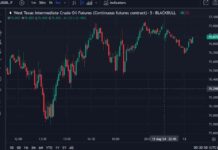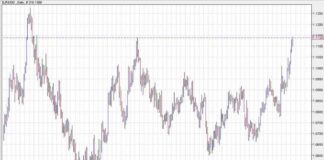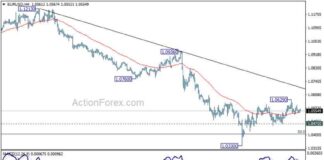Tech ETF Investing: Selective Use Cases for Thematic Tech ETFs
With the recent shift away from mega-cap tech stocks, investors may be considering the potential benefits of investing in thematic tech exchange-traded funds (ETFs). One such fund that has caught the attention of investors is the Roundhill Generative AI & Technology ETF (CHAT), managed by Roundhill Investments. Despite market volatility, CHAT has seen a year-to-date increase of 13.8% as of Friday’s market close, showcasing the continued strength of thematic tech ETFs in the current landscape.
Dave Mazza, CEO of Roundhill Investments, remains optimistic about the investment thesis behind thematic tech ETFs, stating, “These names are still performing well.” In a recent interview on CNBC’s “ETF Edge,” Mazza highlighted the resiliency of the fund, noting that performance over the last month has been generally in line with the market. CHAT’s top holdings include industry leaders like Nvidia, Microsoft, and Alphabet, with a total of 52 holdings in the portfolio, according to FactSet.
Diving deeper into CHAT’s holdings, Mazza emphasized the presence of under-the-radar artificial intelligence plays within the fund, such as Dell, ServiceNow, and Salesforce. These companies are actively utilizing and integrating AI technology into their operations, demonstrating the broad scope and relevance of thematic tech ETFs beyond just the headline names in the industry.
Thematic ETFs: Short-Term Trading Tools or Long-Term Investments?
Financial futurist Dave Nadig offers a different perspective on thematic ETFs, suggesting that they may be better suited for traders looking to express short-term opinions rather than long-term investors. Nadig points out that the average holding period for thematic ETFs is typically weeks, not years, indicating a more tactical approach to utilizing these funds in investment strategies.
Despite the potential benefits of thematic ETFs for short-term trading, investors should be aware of the associated costs. The actively managed CHAT ETF, for example, carries a management fee of 0.75%, which may be considered relatively high compared to passively managed ETFs. However, Nadig argues that the higher fees accompanying thematic funds may be justified given the fast-moving nature of technology and the potential for active management to add value in this space.
Mazza echoes this sentiment, emphasizing the value of an active approach in thematic ETF investing. He notes, “For investors who are looking to either do more or have the potential to outperform, it’s worth paying up for credible active management or a means to identify a particular outcome in that space.” In comparison to traditional active management and mutual funds, Mazza suggests that many thematic ETFs may actually be less expensive, providing a cost-effective way for investors to access specialized themes and trends in the tech sector.
The Evolution of Thematic Tech ETFs
Thematic tech ETFs have evolved significantly in recent years, offering investors exposure to specific sectors or trends within the technology industry. These ETFs provide a diversified approach to investing in tech, allowing investors to capitalize on emerging themes such as artificial intelligence, cloud computing, cybersecurity, and more. By targeting niche areas of the tech sector, thematic ETFs offer a unique investment opportunity for those looking to align their portfolios with specific trends and innovations shaping the future of technology.
One of the key advantages of thematic tech ETFs is their ability to provide targeted exposure to high-growth areas of the tech industry. By focusing on specific themes or trends, these ETFs can capture the potential upside of innovative technologies and disruptive trends that may not be fully reflected in traditional tech indices. This targeted approach allows investors to gain access to companies at the forefront of technological innovation, providing a unique opportunity to capitalize on the growth potential of emerging tech trends.
Investing in thematic tech ETFs can also offer diversification benefits, allowing investors to spread their risk across a basket of companies within a specific theme or trend. By investing in a diversified portfolio of tech stocks, investors can reduce idiosyncratic risk and potentially enhance their risk-adjusted returns. Thematic ETFs provide a convenient way for investors to gain exposure to a specific theme or trend without the need to research and select individual stocks, making them an attractive option for those looking to access niche areas of the tech sector.
The Future of Thematic Tech ETFs
As technology continues to drive innovation and disrupt traditional industries, thematic tech ETFs are likely to play a significant role in investors’ portfolios. These ETFs offer a unique opportunity to capitalize on the growth potential of specific themes and trends within the tech sector, providing targeted exposure to high-growth areas of the market. With the increasing pace of technological change and the emergence of new trends, thematic tech ETFs can serve as a valuable tool for investors looking to align their portfolios with the transformative forces shaping the future of technology.
In conclusion, thematic tech ETFs like the Roundhill Generative AI & Technology ETF (CHAT) offer investors a targeted approach to investing in specific themes and trends within the tech sector. Despite the potential for short-term trading, these ETFs can also serve as long-term investments, providing diversified exposure to high-growth areas of the technology industry. With the evolution of thematic tech ETFs and the increasing pace of technological innovation, these funds are likely to remain a key component of investors’ portfolios seeking to capitalize on the growth potential of emerging tech trends.

















